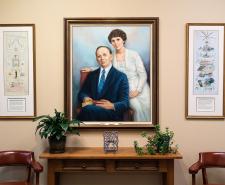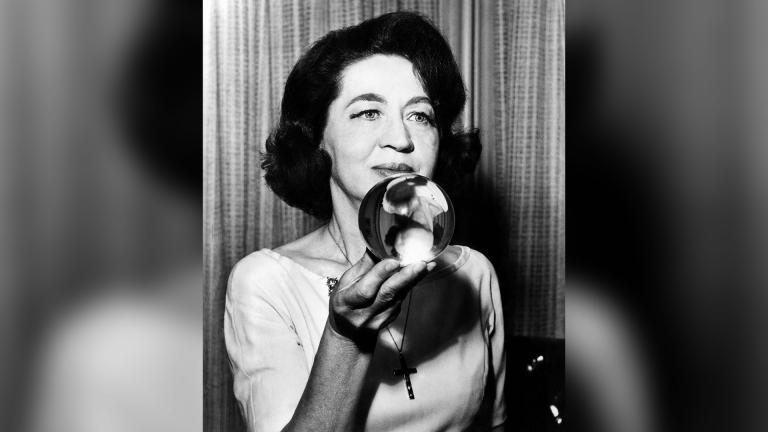
Read more about Predictions

The assassination of John F Kennedy on 22nd November 1963 was one of the most shocking occurrences in United States history. JFK was only the fourth US president to be assassinated.
However, at least one person apparently saw it coming long before JFK was even elected. In 1956, astrologer Jeane Dixon predicted that a Democrat would win the 1960 US presidential election before dying in office.
It’s just one of many accurate forecasts to Jeane’s name. So, was she just a lucky guesser, or did she genuinely have psychic powers? As with other self-proclaimed soothsayers, there’s no way to be absolutely certain.
So, it’s interesting to closely assess how well Jeane’s predictions have actually stood the test of time. Below, we at Sky HISTORY deliver our verdict on the woman who was once a media superstar but is now one of the lesser-known prophets.
Jeane Dixon was born Lydia Emma Pinckert in the Wisconsin city of Medford in 1904. After growing up in Missouri and California, she married James Dixon in 1939.
In May 1956, Jeane was featured in Parade magazine, where she made some now-astonishing predictions about the 1960 election. These included that it would be ‘dominated by labor and won by a Democrat’.
Kennedy was indeed selected as the Democrat candidate, and benefitted from a recent economic recession that had damaged the ruling Republican Party’s standing with voters
Jeane also reckoned that the victorious Democrat would die or be assassinated in office but ‘not necessarily in his first term’. On 22nd November 1963, less than three years into his four-year term, Kennedy was fatally shot in the Texas city of Dallas.
After the assassination, Jeane’s reputation as a prophetess soared - doubtless helped along by her own efforts to publicise her correct prediction.
She conveniently didn’t draw too much attention to the fact that, as the 1960 election approached, she had actually backtracked on her original prediction. That’s when she switched to opining that the Republican candidate, Richard Nixon, would triumph instead.
Nixon himself became a big admirer of Jeane. The two even met at the White House in 1971. For better or worse, Nixon evidently took her alleged psychic abilities seriously during his own tenure as US president.
During the 1972 Summer Olympics in Munich, several members of the Palestinian militant group Black September killed two Israeli athletes and took nine others hostage.
The incident, today known as the Munich Massacre, appeared to vindicate a warning Jeane had previously issued about an impending terrorist attack. Swayed by her foresight, Nixon formed a committee aimed at warding off potential terror threats on US soil.
After Ronald Reagan became US president in 1981, his wife Nancy consulted multiple astrologers for guidance, including Jeane. However, Jeane later fell out of favour at the White House, with her forecasts thought to have become more erratic and less reliable.
Many eye-opening predictions made by Jeane Dixon have not come to pass. One example is that the Soviet Union would beat the United States to putting the first man on the Moon (this proved false despite the Soviets building an early lead in the Space Race).
Other examples include that, in the 1960s, trade union leader Walter Reuther would win the US presidency and a cancer cure would be discovered.
Jeane’s projections generally became darker and more apocalyptic over time. It’s a relief, then, that many of those also didn’t come true. One is that a new holocaust in the 1980s would usher in Rome’s re-emergence as a leading hub of culture, religion and learning.
Though many of Jeane Dixon’s predictions were proven wrong, the fame she garnered after the JFK tragedy made her a pop culture icon.
This paradox led mathematician John Allen Paulos to coin the term ‘the Jeane Dixon effect’. This refers to a phenomenon where a soothsayer with many inaccurate predictions still becomes reputable due to the greater publicity surrounding their few correct calls.
Jeane Dixon died of cardiac arrest in 1997 at the age of 93. Her popularity fuelled the public’s interest in psychics, effectively elevating more of them to celebrity status.
Has reading about Jeane Dixon left you keen to explore other aspects of 20th-century mysticism? We’ve screened much material on that subject. By subscribing to the Sky HISTORY Newsletter, you can find out what else is coming up.